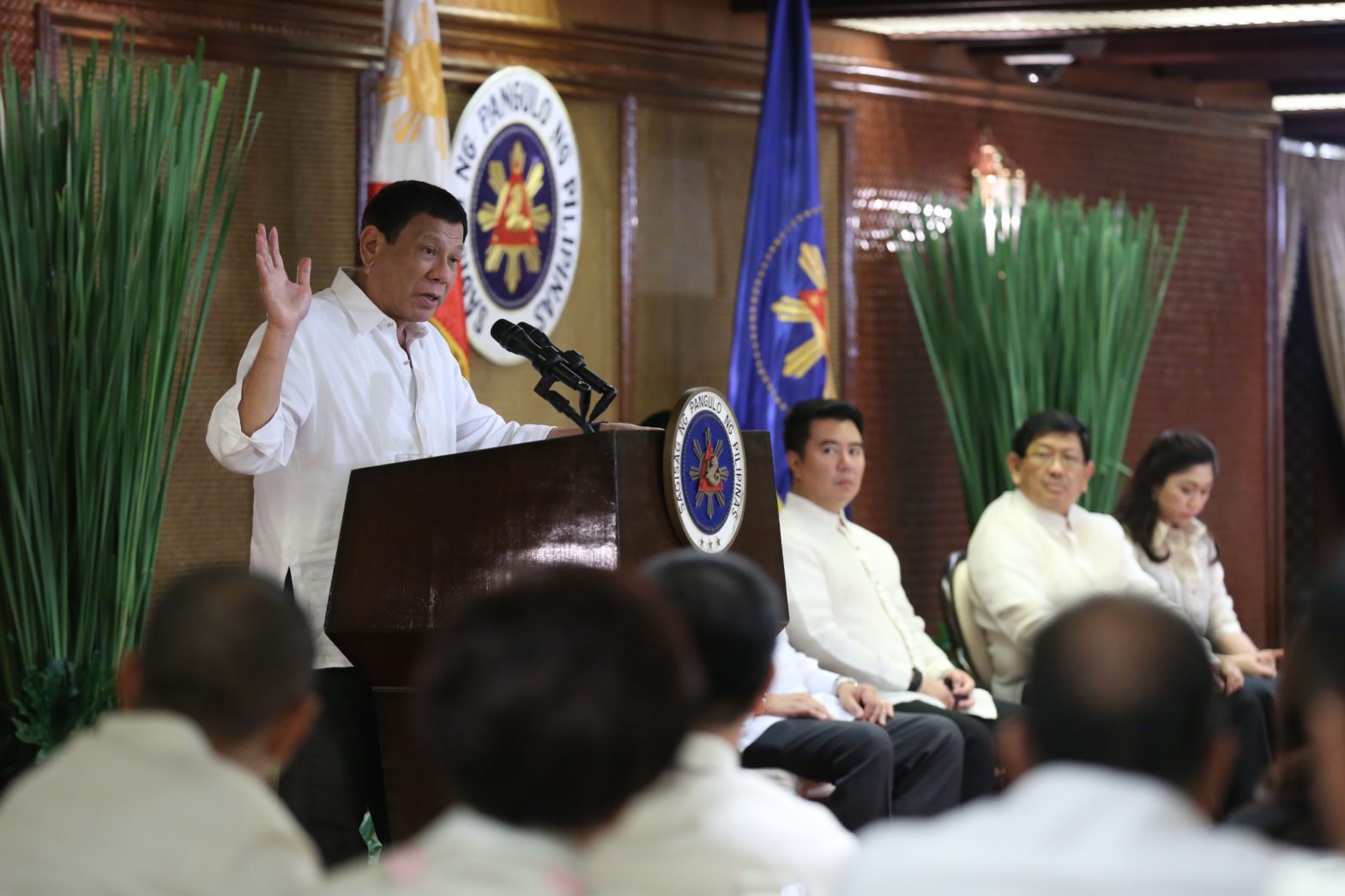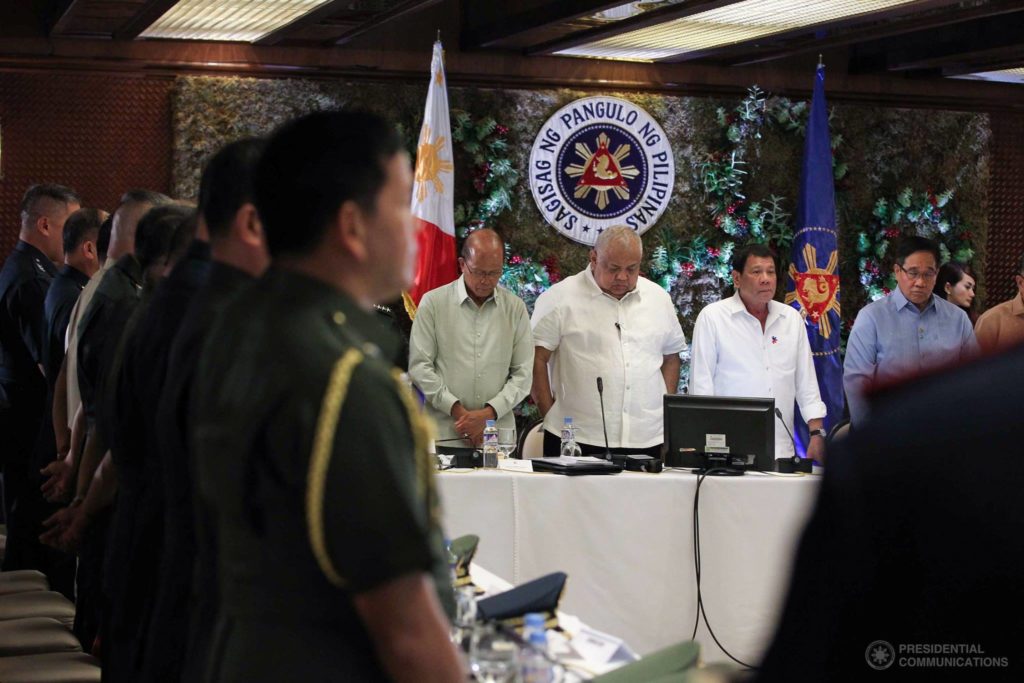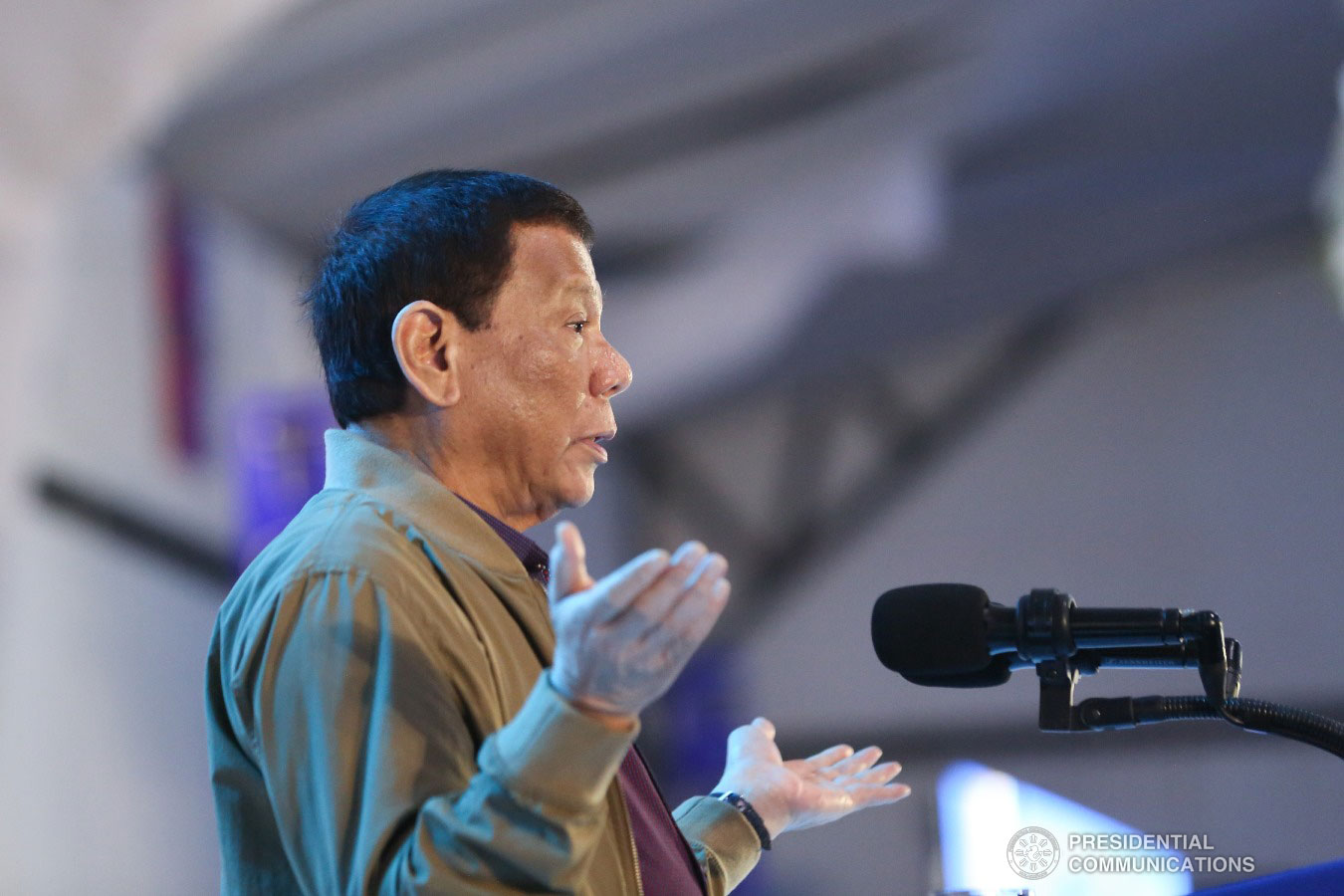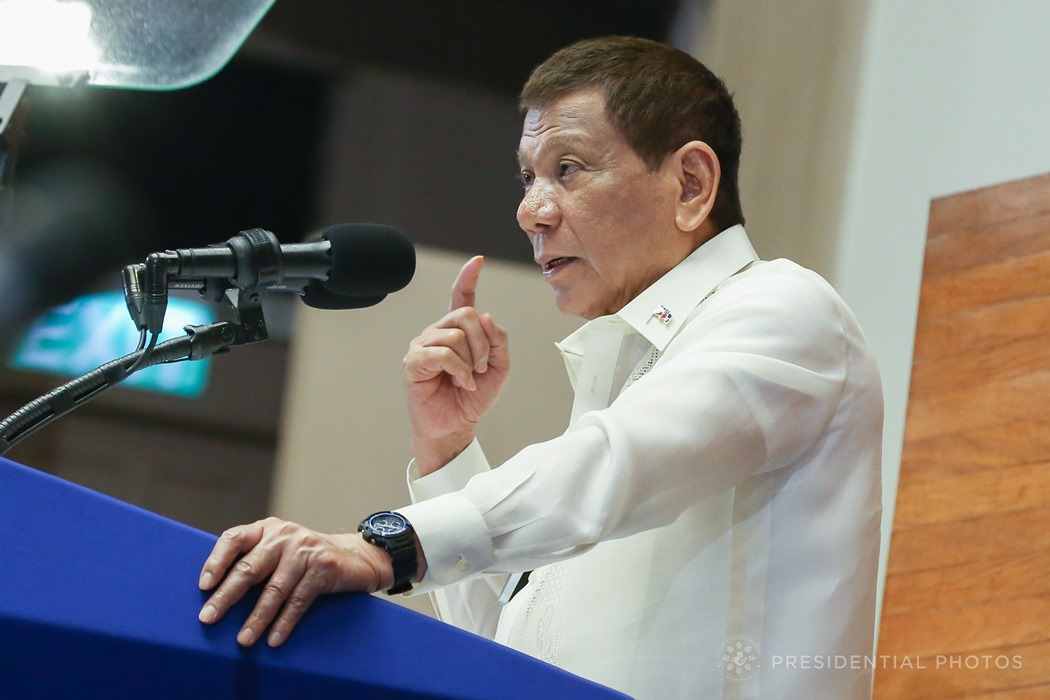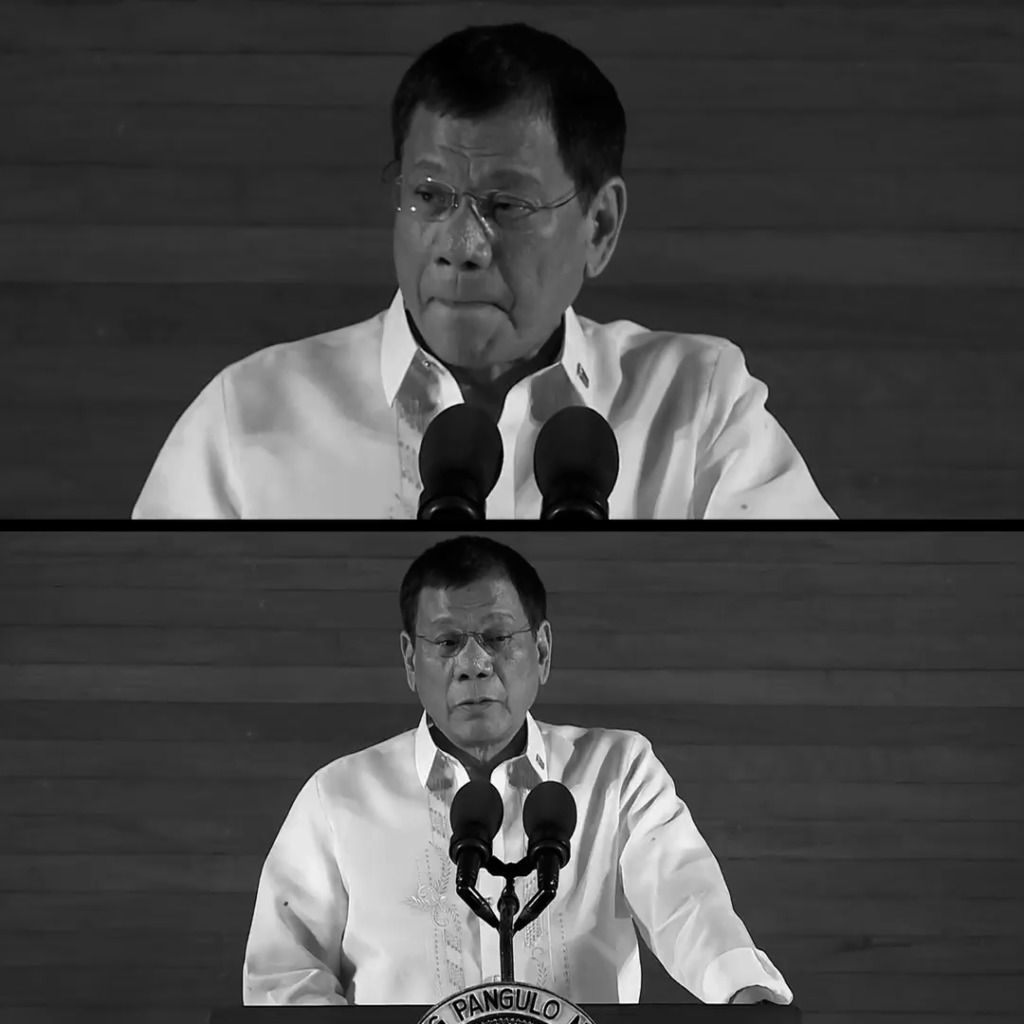![]()
TO PRESIDENT Rodrigo Duterte, they’re thugs to be stamped out. Or so he sometimes says.
“There is no redeeming factor or reason for me to sit down and talk with criminals. Pareho lang rin ‘yan sa droga.”
Duterte described the Abu Sayyaf Group (ASG) this way, during the mass oath- taking of his appointees in Malacanang, last August 1.
STATEMENT: In a brief speech about his peace agenda, Duterte said:
“We will be going for the framework regarding the two factions the MI, MN. But I’m very sorry to say that there will be no talks about these things: Abu Sayyaf. I will not deal with criminals. I will not deal with persons of extreme brutality.”
He added:“They’re out to just derail the life of a nation. Walang iba ‘yan eh, that’s the only matter.”
Source: Mass oath-taking of President Rodrigo Duterte’s appointees. Watch from 01:52 – 02:50.
This pronouncement contradicts his previous stance on the ASG.
Is that so? Duterte on a “not-so-all-out-war” against Abu Sayaff from VERA Files on Vimeo.
FLIP-FLOP: Shortly after he was elected, Duterte publicly expressed he is open to talking to the group. During his thanksgiving party in Cebu City last June 25, Duterte said:
“Eh yung Abu Sayaf hindi ko sila kalaban. I know that is connected with the issue of Mindanao. Kaya nga gusto ko lang klaruhin, sila ba, are we willing to talk or we just fight it out. But I said I hate to buy riffles, bullets and cannons and bombs to kill (the) Filipino. I could hardly move my fingers to sign something, with document to buying things just to kill my fellowmen.”
Source: President Duterte’s speech during his thanksgiving party in Cebu. Watch from 42:38 –43:10
Duterte was more pronounced with his stand on the ASG during the Hari Raya Festival Celebration in Davao City on July 8.
Tracing back history, Duterte pointed out that it was the colonial powers that divided Muslims and Christians. Blaming the United States and other western countries for importing terrorism, Duterted said:
“I am not including Abu Sayyaf dito sa criminality, you’ve never heard me say “mga kriminal.” It is a different setup there because these are the guys who were driven to desperation. Wala na nga from Nur—alam ko ‘yan—from Nur to the ARMM, there was no sufficient semblance of governance. And that is why they are pushed to the wall, then they became radicalized. That’s what happened in Middle East. It is not that the Middle East is exporting terrorism sa America. America imported terrorism.”
Source: Mindanao Hariraya Eid’lFit’r 2016. Watch from 16:46–18:09.
While the first three mentioned flip-flops happened on three separate occasions, Duterte’s contradictory statements on the group have actually occurred in one event — during his first State of the Nation Address (SONA).
Duterte mentioned the Abu Sayyaf in his SONA twice. Reading his prepared speech, the president said:
“Meantime, since our country continues to be confronted with internal security threats aggravated by the existence and activities of the terrorist group Abu Sayyaf, the full force of the AFP will be applied to crash these criminals who operate under the guise of religious fervor. The AFP shall enhance its capability to search and engage these rogue and lawless elements.”
Source: 2016 State of the Nation Address. Watch from 00:56:07–00:56:33.
But his tone shifted when he deviated from his prepared speech. Opting to deliver his peace agenda on the proposed Bangsamoro territory, Duterte said:
“Ang sinasabi kong babalik ako, dahil ako sa federalism. Both Misuari, Sema and all, at least the politiko leaders ng Mindanao will agree to it. We do not… Remember that ako ‘yung hindi ko dinidikdik yung masyado ang Abu Sayyaf because it is really connected with the first talks between Misuari, the President, subsequently for President Marcos and now, until now, until now.”
Source: 2016 State of the Nation Address. Watch from 01:46:00 – 01:46: 34.
Founded in 1991 by Filipino Islamic scholar Abdurajak Abubakar Janjalani, the ASG seeks an independent Islamic state for Muslim Mindanao.
It was comprised of former Moro National Liberation Front (MNLF) members who have gone frustrated over its leadership. The ASG splintered from the MNLF after the latter engaged in peace talks with the Philippine government.
Unlike the ASG, the MNLF settled for autonomy from the national government. The MNLF reached a negotiated political agreement with the Philippine government in 1996, which aims to correct decades of social injustice in Muslim Mindanao.
The situation in Mindanao remains unchanged since the agreement was signed. In the Framework Agreement on the Bangsamoro, the Philippine government and Moro Islamic Liberation Front (MILF) agreed the status quo in Muslim Mindanao is “unacceptable.”
The ASG continued its uprising and claimed responsibilities over several violent attacks, including bombings in different parts of the country.
It’s been identified as a terrorist organization by the U.S. Department of States with ties to Osama bin Laden’s al-Qaeda network, and Jemaah Islamiyah. The group reportedly now has links to the terror group ISIS.
Despite recent advances in peace talks, the ASG is still able to recruit new members in areas where it is operating because of its socio-economic situation.
The group recently beheaded two Canadians it kidnapped from Samal island last year.
